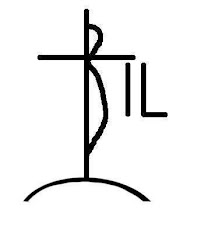The referee’s scorecard
by rick olivares
A second after the referee waved his hand to signal an end to the fight, the trainer of the losing boxer climbed up the ring and charged him. With a speed belying his years, he ducked the sweeping left and sent a powerful uppercut that knocked out the aggressor. Everyone was stunned. The referee adjusted his ruffled suit and nonchalantly got down the ring.
Bruce McTavish has spent nearly his entire life in boxing; first as a boxer where he compiled a 33-2 record then as a trainer then ultimately as a judge and referee. “Oh, I got stories to tell,” he cackles. I’m sure he does.
Ever hear of the time he told Vitali Klitschko that the two of them were alike. The 6’7” Ukrainian cocked an eyebrow. “You and me,” he said to the chiseled champ. “We’ve both got doctorates. We’re a rare breed – the only ones in boxing.” The heavyweight champ, who has a Ph.D. in sports science laughed and shook hands with the six-foot tall man with a doctorate in Economics from Auckland University.
He’s officiated matches in such boxing hotbeds of Austria, Russia, North Korea, inside a women’s prison in Thailand, and Africa. “One time in Novosibirsk, Russia the weather conditions were freezing outside. Sub-zero temperature. Then the fight was held inside a hockey rink and it isn’t called the Ice Palace for nothing. The ice made the place so cold I got the chills. After the fight, I got invited back. I said, ‘Thanks but I think it’s always good to give opportunities to others. It’ll be a great experience for them too.’”
That he says, is his polite way of declining.
“When I was younger, I’d be the first one to hop into a plane if there was a fight for me to officiate. But these legs have seen better days so I try to stay close to home (that is in Angeles City, Pampanga) and around Asia.”
One time after another heated match inside the Angeles City Cockpit, McTavish stopped a match after one boxer got decked six times in the fourth round. “Why did you stop the fight?” yelled the handler. “That’s a part of our strategy. We make the other believe that were losing then we come back strong!”
What do you do when you’re on the business end of a firearm?
You tell him what he wants to hear.
“Why didn’t you tell me that before the fight,” said McTavish as he put his arm around the enraged cornerman. “Next time, I won’t stop it.” He finished with a wink. The man holstered his gun and went down the ring but not before leaving him with a point to ponder: “You’re a lucky man.”
McTavish turned around not wanting others to see him as he wiped the beads of sweat on his forehead. “Yes, I am,” he thought to himself. “Boxing teaches you diplomacy.”
And it should also teach you to get out of the way.
While officiating another match, one pugilist unloaded a powerful roundhouse that missed his opponent but tagged McTavish who cracked a few ribs. The other boxer went on to knock out the offending fighter. After the match, said a pained McTavish to losing fighter. “You would have won the fight had you connected with that.”
McTavish runs eight kilometers five times a week and does calisthenics for 45 minutes everyday. He also holds a black belt in karate that has kept him in superb shape.
He hasn’t needed it for self-defense so far. But his daughter one time disarmed a robber who held up a gun to them as they withdrew money from an ATM. “The other guy, his back-up, got out of there as fast as he could,” remembered McTavish who is a recognizable figure in Pampanga.
“Si ref ‘yan.” say the tricycle drivers who at times don’t charge their local “celebrity” for his fare. But the New Zealander would have none of it. “We all have to work for a living. I’m not asking for special treatment.”
He’s refereed over 120 fights and judged 34 matches. Sometime last year, McTavish, now at 68 years of age, was thinking of hanging it up. “But one time, I was standing in the corner waiting for the boxers to make their entrance and I felt that familiar tingle in my spine. The rush was there. The lights. The crowd. The ambiance. I told myself when I lose that then I know it’s time to hang it up. But for now, it’s still there and I love it.”
The first fight that he ever officiated paid him PhP 29. He was then working in Pampanga while working for Chrysler’s business at the former Clark Air Base. That began a career, “love affair,” he corrects, with the sport of boxing that has taken him all over the world, to work fights of some of the best boxers of our times, and yet, in spite of having been everywhere, to call the Philippines home. “It pays better now and it has allowed me to raise my family and to provide for them. I am very much married (to Angeles native Carmen Tayag, his wife of over 30 years) and happy to be so.”
When I first asked him for a few minutes of his time, he smiled and said, “I got all day. I got lots of stories to tell.”
And yes, he does. I sat enthralled.









No comments:
Post a Comment